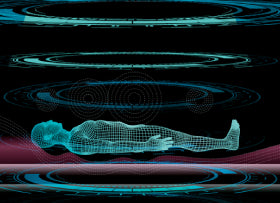The Science of Sleep: Understanding the Link Between Mattresses and Neck/Back Pain
The importance of great sleep can’t be overstated, especially with its many benefits to an individual’s health. For starters, getting enough sleep daily can help improve productivity, especially for those who are still at school or are working long hours. It can also help strengthen the heart and boost someone’s mental health. In addition, a good night’s sleep can help maximize athletic performance by improving motor skills and reaction time.
However, some people experience back or neck pains whenever they wake up in the morning. Various known conditions can cause back or neck pain, especially after sleeping. But unless you are diagnosed with a back issue or injury, the mattress you are sleeping on is the likely culprit on why you are experiencing discomfort right after you wake up.
For decades, countless people have associated neck and back pain in the morning with certain diseases. However, having the wrong mattress is usually the main reason many experiences discomfort when they wake up. Even though beds are made to give people comfort and support while sleeping, having the wrong one can do more harm than good to your body in the long run.
The Role of Mattresses in Back and Neck Pain
Mattresses are always a worthy investment for many individuals around the globe, especially with the growing need for comfortable sleep. But many tend to purchase a mattress just because of its design without knowing how it supports the body when they sleep. Sleeping positions and spinal alignments must be taken into consideration when shopping for a new conditioning mattress.
Low-quality mattresses often create pressure points on different body parts in contact with the bed. This restricts blood flow and can lead to extreme discomfort in the middle of the night. And for those who like to sleep on their backs, the pressure from the mattress, especially from firm ones, can stress the spine, resulting in back or neck pain every morning.
Continuous use of low-quality mattresses can lead to the spine losing its natural alignment, causing chronic back and neck pains. Sleep quality will significantly decrease, and your overall mood throughout the day will be highly affected. You will also constantly wake up in distress, and this might lead to more complicated conditions when left untreated.
Indicators to Look Out For
An unexpected back or neck pain in the morning can be frustrating and confusing, especially for those with no known issues. These people might find it hard to determine the cause of their discomfort, especially if they do not consider their mattresses responsible for it. But several clear signs point to mattresses being the possible culprit of your back or neck pain.
- Firmness
One of the common reasons why your mattress causes neck and back pains is its firmness level. Mattresses come in several firmness levels, each designed to support particular body types and conditions. If you are using a mattress that is too soft, it might not be able to properly support your spine, causing it to deteriorate in the long run.
Many solve this by purchasing a firm mattress for back pain relief. But often, switching to hard beds is not the proper solution. This is because mattresses that are too hard can create pressure points to many parts of the body, including the spine, which can cause chronic back and neck pains.
- Old Mattress
Another possible reason why your mattress causes discomfort is if it is already too old to use. The usual lifespan of a mattress spans from 7 to 8 years, and it is recommended that you buy a replacement once the bed reaches this age. A person’s body changes over time, and their current body type might not be suitable for the old mattress they’re using, resulting in unexpected back or neck pains.
- Low-Quality Build
People spent a lot of their time on their mattresses, which is why it is considered a vital investment anyone would make in their lifetime. However, countless individuals purchase affordable options without checking the quality of the mattress. Low-quality mattresses can be a headache for many as they are usually made of substandard materials and designs that won’t be able to support your body effectively.
- Painful Mornings
A good sleep should have you feeling refreshed, but waking up in pain is another indicator sign that your mattress needs to be replaced. Old, soft, and low-quality mattresses will not be able to support your body and put unwanted strain on your spine while sleeping. This leads to you complaining of back or neck pains right after you wake up. This can also cause you to feel tired even though you have enough hours of sleep.
- Uncomfortable Sleep
The most noticeable trace of your mattress being the cause of your pain is if you constantly have a hard time sleeping. This might include difficulties finding a comfortable sleeping position, constant waking up, or endless tossing and turning all night long. A bad mattress will make a comfortable sleep only a dream for you, so it is best to replace it.
Conclusion
A night of quality sleep is now a must for many people, especially those looking to refresh from various daily activities. But using a bad mattress can lead to individuals only feeling more frustrated and confused because of sudden back or neck pains when they wake up. This is why investing in high-quality mattresses is a must for many households nowadays. They can mitigate the chances of experiencing back and neck pains and ensure a fantastic sleeping experience.
If you are already searching for the best mattress to support your body correctly, then the AiR by nishikawa Mattress is for you. It has a unique bumpy structure that can distribute pressure points all over the body, so your blood circulation will not be restricted. It is also made of four different layers that can efficiently support any body style and allow you to have a comfortable sleeping posture.





